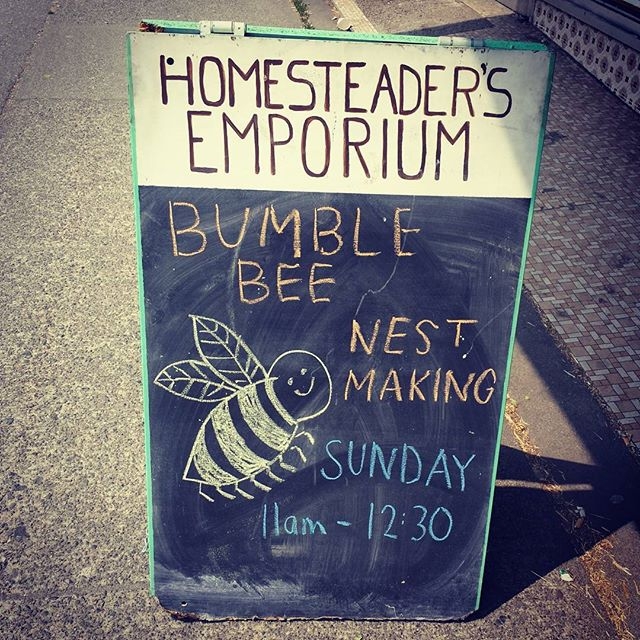As part of a new project called Change Makers I am interviewing people and organisations who are doing things a little differently and are creating positive change in the world. The aim of this is to share some inspiring projects and show that there are alternatives to using unethical corporations, connect people looking to be the change to companies that can help them achieve that goal and maybe even encourage you to start something of your own.

Our Community Bikes is based in Vancouver and from the outside looks like a regular bike shop. However things are done a little differently inside. In this bike shop you don't simply pay for someone to fix your bike, you fix your own bike with the guidance of trained bike mechanics. It doesn't stop there either, they offer skills training, employment therapy and bikes for people who could't afford one otherwise.
It is about education, self reliance, getting your hands dirty and as I learned after chatting with Jesse Cooper, who has been with the organisation since 2003, a whole lot more.
Tell me what Our Community Bikes is all about?
Our Community Bikes is about education, empowerment, empathy, and accessibility. We look to give new life to the hopeless, bringing back the lost, the forgotten, and allow each person and bike to tell their stories through refurbishment, recycling, and reuse.
How do you differ from a regular bike store?
We allow the interaction of maintenance with the customer. We are encouraging them to hang out and pick up a tool, and learn some technical skills, empower themselves. We also offer a large range of used parts that comes from donations and salvage. This offers a bit more choice in the financial realm. We also specialize in the restoration of obsolete technologies, as we have the skill and parts to refurbish bikes that no longer have after market parts available, or very few. As well, we run different types of social programming, like volunteer training, peer skills, life skills, occupation therapy and job instruction for staff, volunteers and other folks.
What was the inspiration behind starting Our Community Bikes?
Mostly it was about accessibility. Impoverished or low income families that relied on bikes to move around the city needed a source of inexpensive service and parts. Also, the idea was to create a community hub were many folks of all walks could come together and learn from each other's life stories. Environmental, we were able to create a recycling outlet for all the bikes moving to the landfill, as well as generate revenues from the salvage!
What did those involved with the start up do before this? Were they very experienced in this industry?
The people who helped start up were cyclists themselves, but from different backgrounds and experiences. Only one or two had firm mechanical experience. Many of them though were active in pushing cycling as a transportation alternative. Activists if you will.
Were there any difficulties that the team faced in starting such a unique enterprise?
In the first five years, funding ran dry and the directors were almost sure that we would have to close our doors. But it turned around and through a little luck and some hard work it came back.
At the beginning the lack of experience from a financial, management, and mechanical perspective posed many challenges as well. It took some time to get some experience.
Why do you think it is important to have a space where people work on their own bikes rather than pay for someone to fix it for them?
The biggest thing we face today is a separation from out tools and our technologies. We aren't allowed the opportunity to be interactive with our material possession in such a way that we can understand it's basics. The trend of just being an operator isn't conducive to healthy learning. Offering the public a space to understand their tools and their equipment is empowerment. It foster the growth of confidence and curiosity. We needn't be a specialist to understand but only curious, which leads to many more levels of healthy learning and broadening understanding. It's a path to accepting community!
What advice would you give to someone thinking about starting their own business or non-profit that contributes to positive change?
Hold fast!! It's really challenging as any business owner knows to start this sort of thing, but reach out to your community for help! Get many hands on board! Look for volunteers that can bring managerial experience and a dedicated team. Don't let lack of funds be the barrier, because some creative media, and thinking and fundraising can bring that in.
What are the next steps for Our Community Bikes?
We are to settle in to our new space, pay off our loan and pay back into our line credit, start some living wage policy for staff, and start a new round of strategic planning. We want to get that financial buffer back, and acknowledge the staff skill so we are able to retain the skill we help develop, and start spinning up more programming oriented towards people with barriers and other various groups in need.
We also have a fundraiser in our space (a party) on Friday the 30th of October, and that we are also looking for one time and monthly donors through our donate button from our website. It goes through Canada Helps, which automatically issues tax receipts.
https://www.canadahelps.org/en/charities/pedal-foundation/
What is the change you want to see in the world?
It would be great see social equity take the stage, bringing about empathy and understand, community, which would in turn trump personal gain and greed.
Thanks to Jesse and the team at Our Community Bikes www.pedalpower.org/
Give a little thought to the next time your bike needs some love and see if you could perhaps support a great organisation while learning a new set of skills in the process.
















